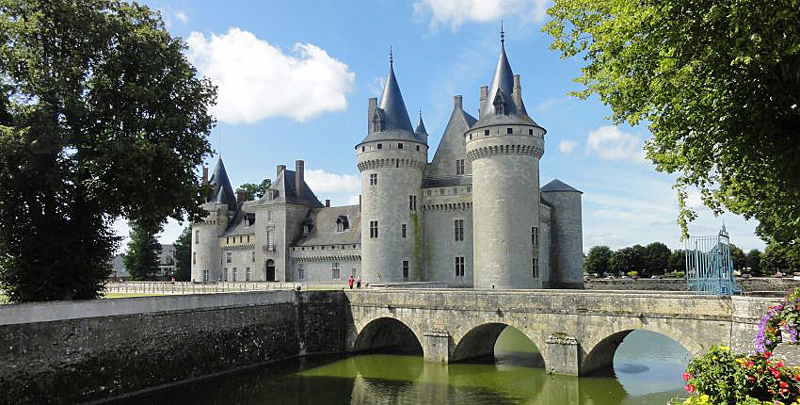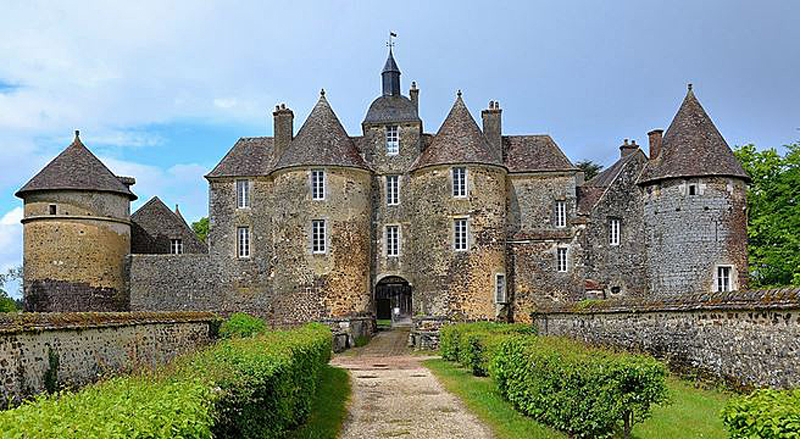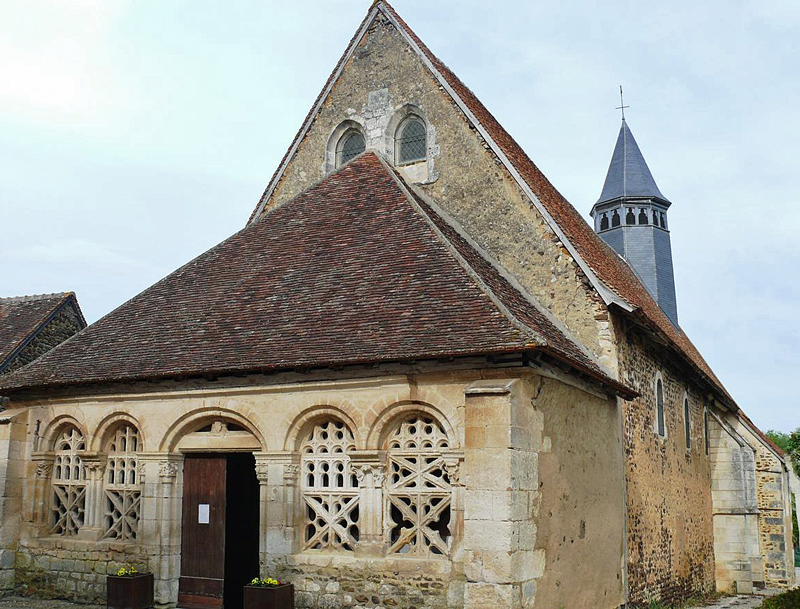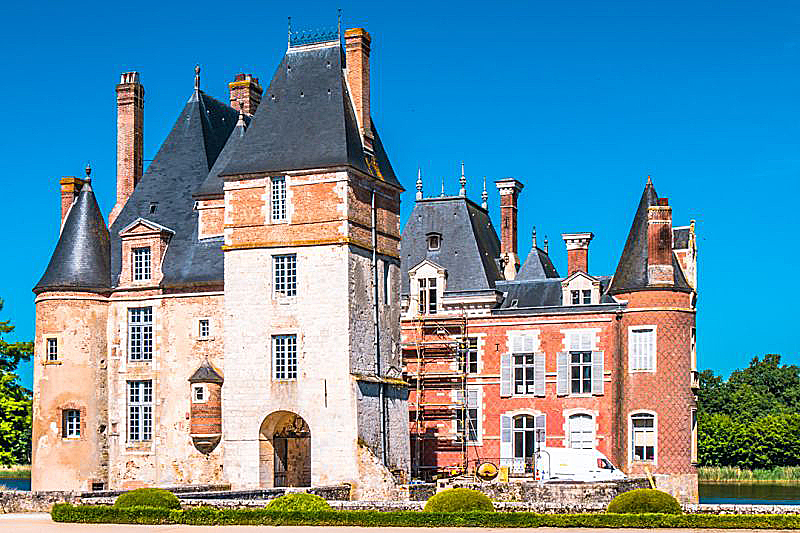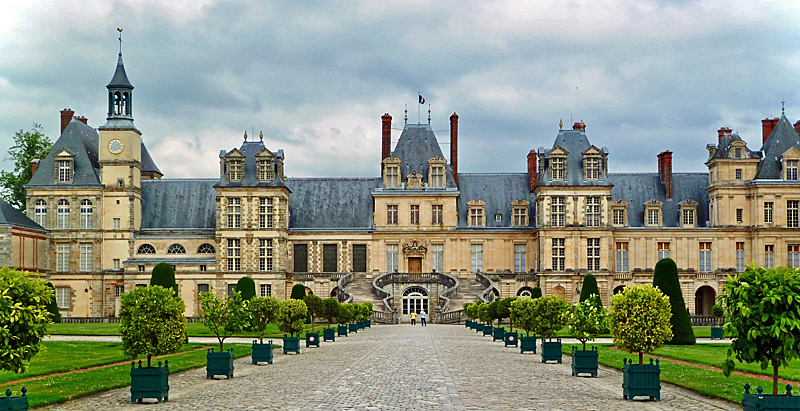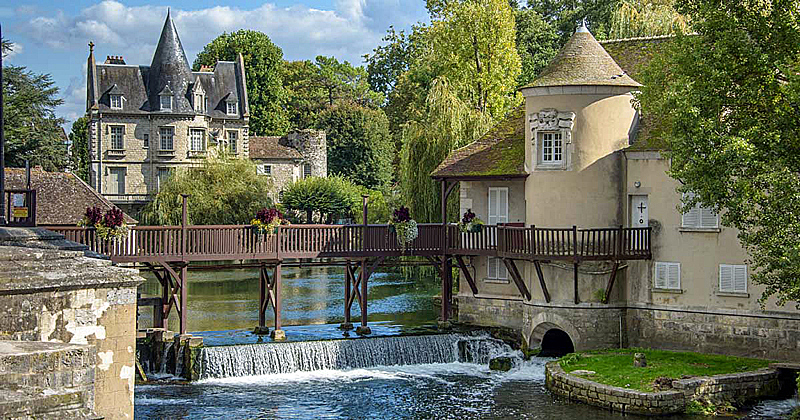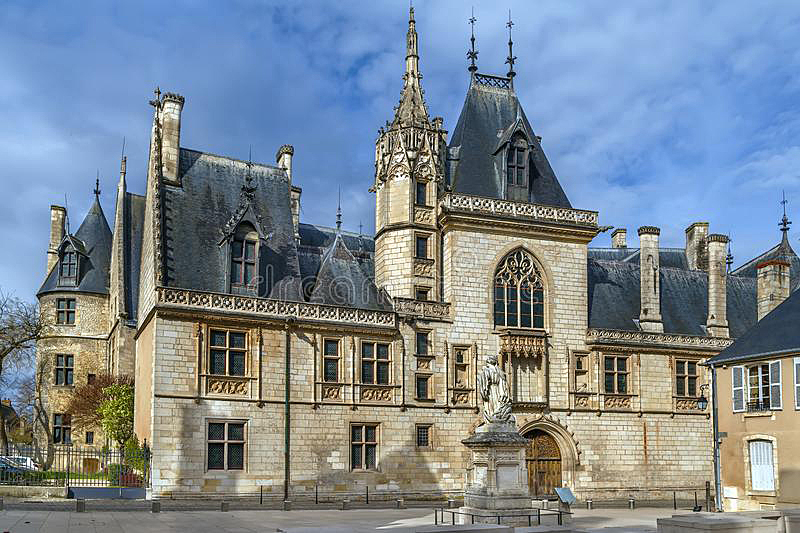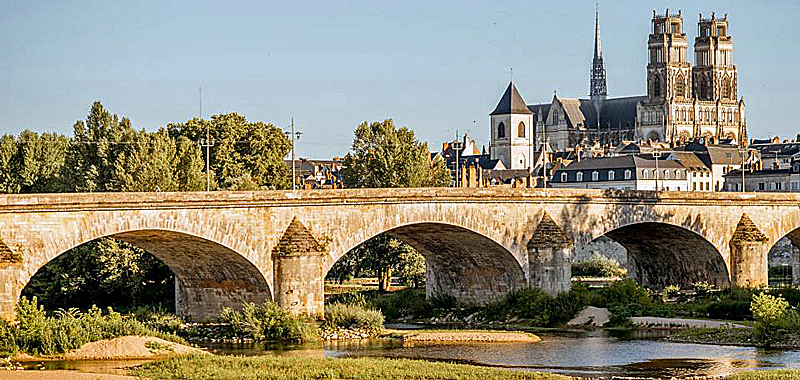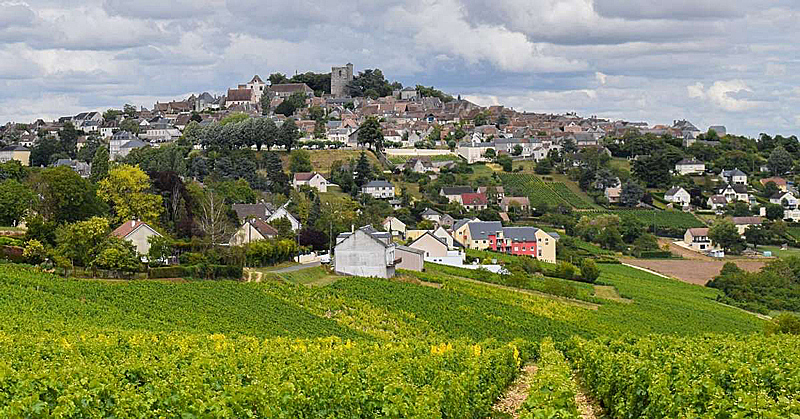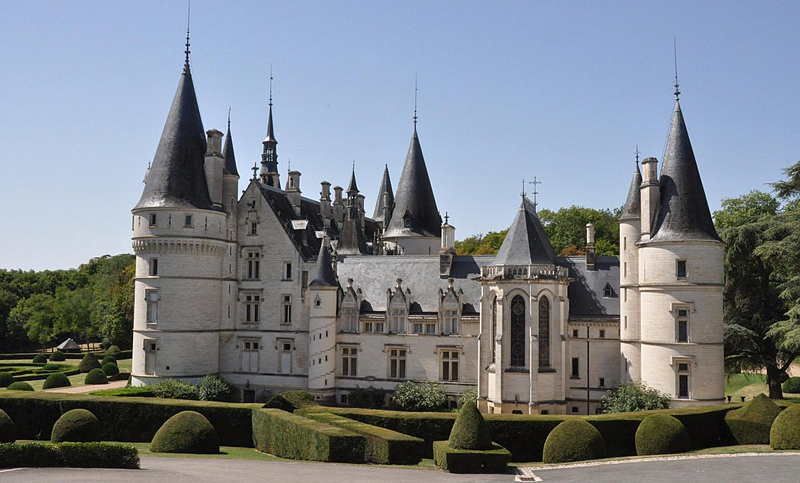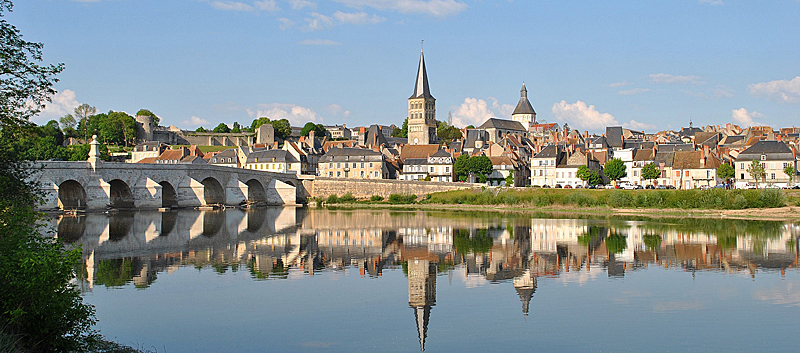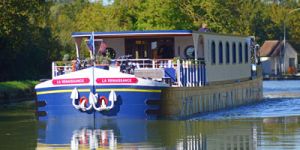Barging in France: The Canal de Briare
Part 3: Places of Interest on the Canal de Briare
The picturesque Canal de Briare, one of the oldest canals in France, connects the valleys of the Seine and the Loire. The Canal de Briare begins just north of Montargis at Buges. The section of the canal between Montargis and Rogny follows the valley of the River Loing. Many of the villages and hamlets date earlier than the origin of the canal.
[ Château de Saint-Fargeau | Château-Sully-sur-Loire | Château de Ratilly | Moutiers-en-Puisaye | La Bussière | Château de Fontainebleau | Moret-sur-Loing | Bourges | Orléans | Sancerre | Château du Nozet | La Charité-sur-Loire ]
The Château de Saint-Fargeau is a 17th-century, Renaissance château, originally built as a hunting residence in the 10th century. Destroyed in the 15th century, a castle replaced it. This castle was itself destroyed by fire but promptly rebuilt in the 17th century, with additions and major improvements made in the 19th and 20th centuries.
The Château de Saint-Fargeau has a distinctive design. From above, the château’s curtained walls and towers form an irregular pentagon, the corners of which are formed by six towers of pink brick. Lanterns top five of the towers. Designated as a historic monument in 1945, the château has been open to the public ever since. The château has organized a sound and light show each year to raise funds for additional restorations. The spectacle lasts two hours and spans ten centuries of history, from the end of the 10th century through the Liberation in 1944 by the American army. This production has taken place for more than 35 years and involves over 700 actors and 50 horse riders from the surrounding community.
The Château of Sully-sur-Loire was first built as a defensive fort to protect one of the few places to ford the Loire. Today it is one of the most impressive and picturesque châteaux in the region.
With its origins in the 11th century, the Château de Ratilly was built on existing foundations in the 13th century. Today, Ratilly is a creative Center for the Arts and a pottery workshop, continuing a local tradition which has existed since the Roman occupation of France. The château transformed into a fine residence during the Renaissance when many of its defenses were no longer needed. Arrow slits changed into large windows and some towers were modified for other purposes. Visit the magnificent Château de Ratilly on your cruise with the barge Renaissance on the Canal de Briare.
What may seem like a rather small and uninteresting little church is, in fact, one of the most important in Burgundy. The church of Saint Peter and Saint Paul in the village of Moutiers-en-Puisaye started life as a priory, built by monks in the 10th century in the Romanesque style. An 8th century hospice on the site took care of pilgrims, especially those from Brittany and England, who were traveling to Rome to visit the tomb of Saint Peter. The derivation of Moutiers is from the French word for monk, moine.
During the Hundred Years War, a band of marauding Bretons traveling south destroyed the priory and the hospice but left the church standing. In the 19th century, it was one of many studied by the French architect Eugène Viollet-Le-Duc and, in 1862, became classified as a historic monument. What Viollet-le-Duc didn’t know, however, was that under the whitewashed plaster walls, the church was hiding an incredible secret.
In the spring of 1982, after an especially dry warm spell, cracks appeared in the plaster and parts crumbled and fell off, revealing color and images. Over 10 years, an expert restorer of medieval iconography, Isao Takahashi, worked, in part, in the restoration of the 12th century murals and frescoes.
The 200m² of painted murals are some of the most important in Burgundy today. They describe in great detail scenes from the Bible, including Genesis, the Great Flood, Adam and Eve, Cain and Abel, as well as the life of Christ from the Nativity, the Baptism in the river Jordan, and His subsequent crucifixion.
La Bussière takes its name from the wood it once grew, with Buxeria being Latin for a plantation of trees. The village lies on the edge of the old Roman road, the Via Agrippa. Several Roman artefacts were found in its locale. The château was built in the 12th century by the local Lord, Stephen de Feins. Well situated on the road running from the Loire Valley and Paris, the village soon became a postal stop and a commercial hub, with much of its income going to the estate of the château.
During the French Wars of Religion of the 16th century, La Bussière was a Catholic stronghold, whereas the neighboring town of Gien was largely Protestant. In 1567, a group of Huguenots attacked the village and killed 17 Catholic priests, damaging the château in the process. Rebuilt in the 17th century, the château was enclosed by the pond and gardens, designed by Louis XIV’s chief gardener André Le Nôtre. After the French Revolution, the castle changed hands several times until eventually sold to the current owners, who have lived on and maintained the property for over 200 years.
Lavishly decorated by the finest craftsmen and architects in Europe, the Château de Fontainebleau was truly the greatest residence of the Kings of France. Francis I brought the Italianate style, known as the Renaissance, to France while overseeing the construction of the palace, whereas Henri IV created magnificent gardens in and around the forest which surround it. Every monarch from Louis VII to Napoleon III has put their mark on the palace and today it radiates with the Kings' ideals of wealth, luxury and elegance.
Moret-sur-Loing is a fortified town on the banks of the River Loing. Once part of the Royal Domaine, it found its fame while the Impressionist painter Alfred Sisley lived within its ancient walls in the 19th century. Sisley painted many rural and industrial scenes around Moret-sur-Loing and today is recognized as one of the most important English Impressionist artists.
Once the capital of the Province of Berry, the city of Bourges has an intriguing architectural history. While the Cathedral, considered as one of the earliest examples of the high Gothic style in the 13th century, the palace built for Jacques Coeur, is still one of the finest examples of medieval architecture in France. The city has remained well preserved, with many half-timbered buildings and fine townhouses.
Orléans on the River Loire, is most famous for being the home of Joan of Arc and as the site of the Siege of Orléans which began the end of the Hundred Years’ War. Today it is a shining example of French medieval architecture and the 13th century cathedral is one of the most beautiful in France.
Perched high on a hill overlooking its famous, eponymous, wine-growing region, Sancerre was first founded by the Romans. Its name is thought to come from the phrase “San Caesar”, meaning Caesar’s Temple. During the Religious Wars of the 16th century, Sancerre was a Protestant stronghold and fought off many Catholic attempts to besiege it. During the French Revolution, the town was a Royalist stronghold. Sancerre was the local command center for the French Resistance throughout the Second World War and, although the Germans occupied the area, the resistance still continued their work.
Built in the 19th century by Compte Lafond in a variety of architectural styles, including Renaissance, Bavarian and Gothic, the Château du Nozet is one of the most romantic châteaux of the Loire. It has been the seat of the Ladoucette family for over 200 years and over 160 hectares of some of the most prestigious vineyards in the Loire surround it.
Situated on the ancient pilgrimage route to Saint James of Compostella in western Spain, La Charité-sur-Loire is a beautifully preserved medieval town and today a UNESCO World Heritage Site.
French Hotel Barge Cruises - Canal de Briare
Hotel Barge Renaissance
Upper Loire/ Burgundy: Canal de Briare
Up to 8 guests
Charters and Cabin cruises
Themed Cruises
Family, Golf, Wine


